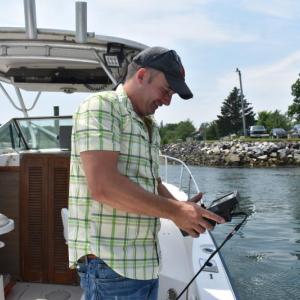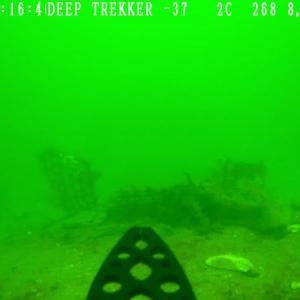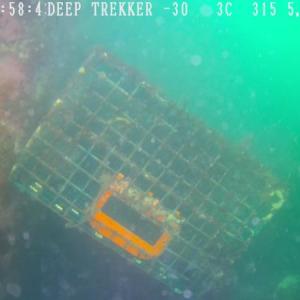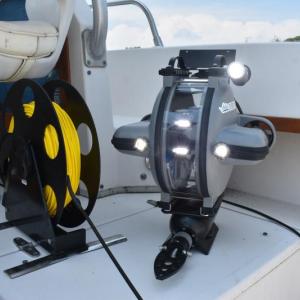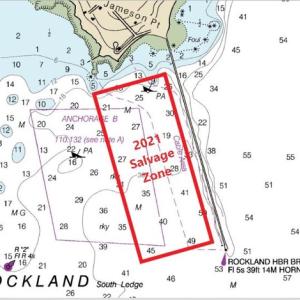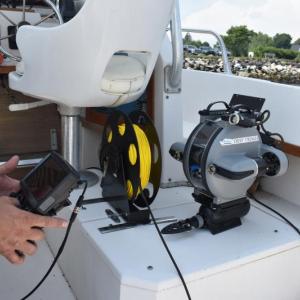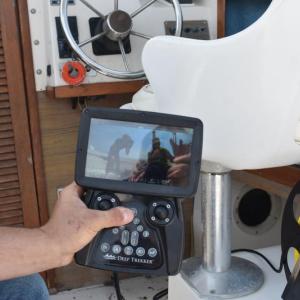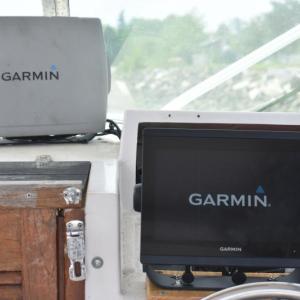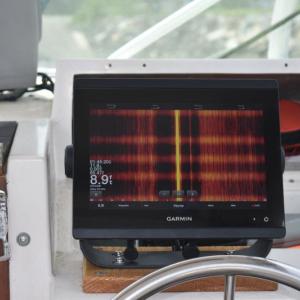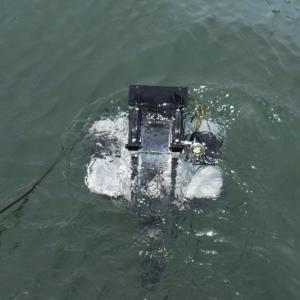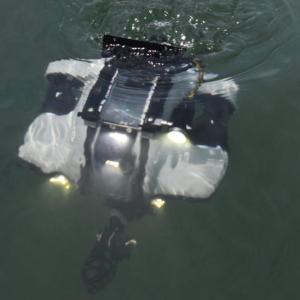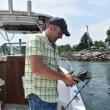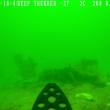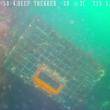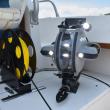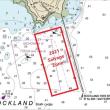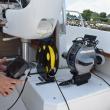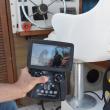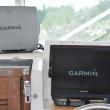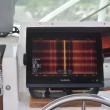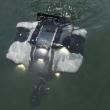Rockland marine surveyor gets to the bottom of Rockland Harbor, cleans up derelict gear
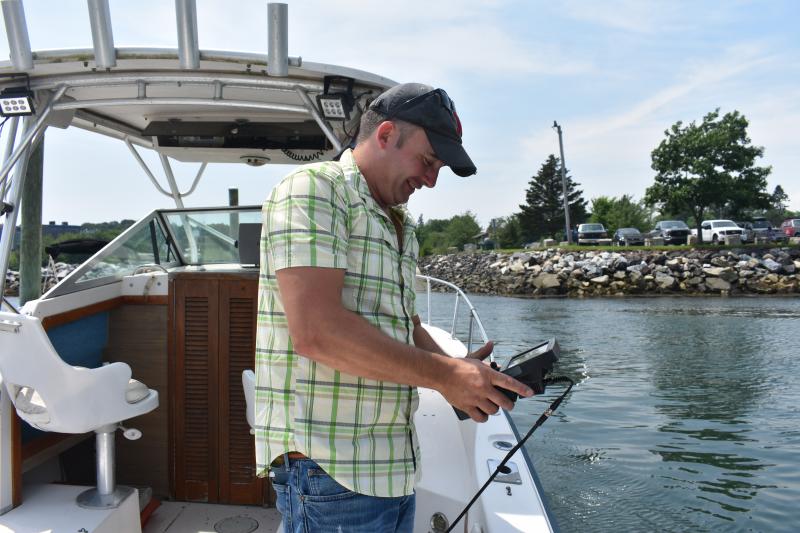 Ian Emmott maneuvers his Deep Trekker recovery machine using a remote control. (Photo by Sarah Thompson)
Ian Emmott maneuvers his Deep Trekker recovery machine using a remote control. (Photo by Sarah Thompson)
 (Photo courtesy Ian Emmott)
(Photo courtesy Ian Emmott)
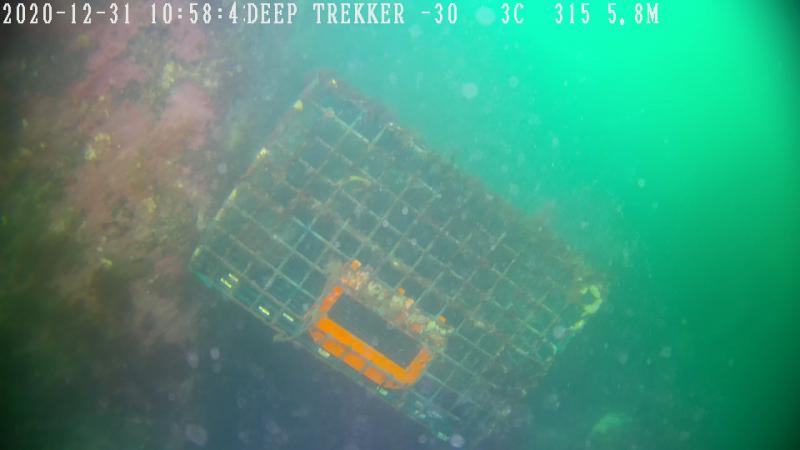 January view of a sunken trap in Rockland Harbor. (Photo courtesy Ian Emmott)
January view of a sunken trap in Rockland Harbor. (Photo courtesy Ian Emmott)
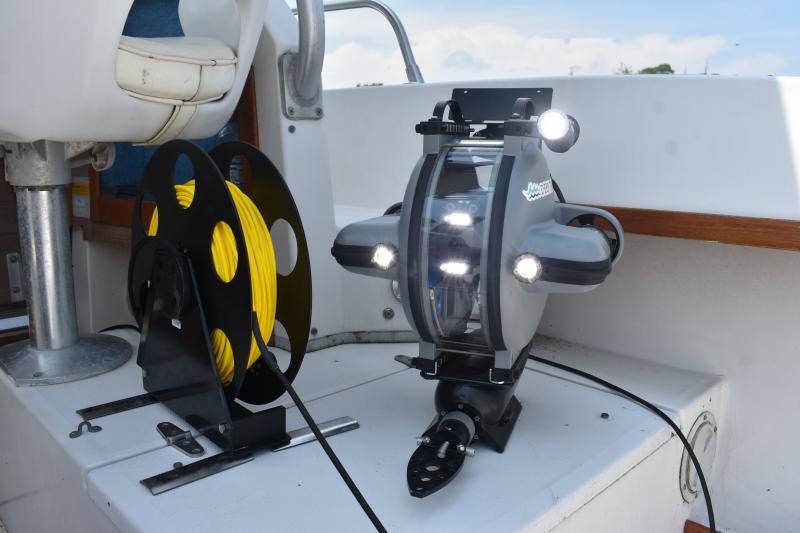 Deep Trekker. (Photo by Sarah Thompson)
Deep Trekker. (Photo by Sarah Thompson)
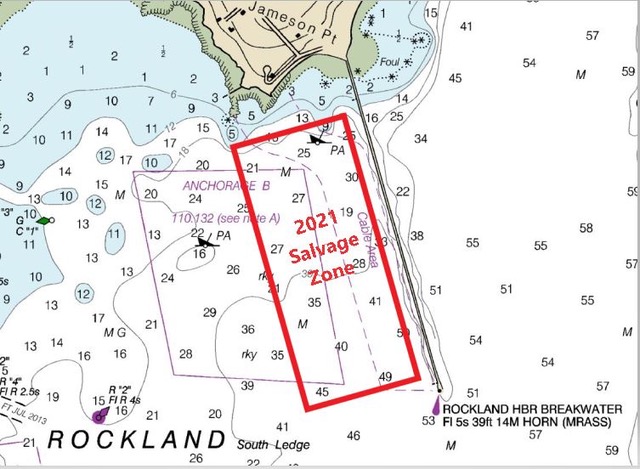 Map of Emmott’s intended recovery zone. (Photo courtesy Ian Emmott)
Map of Emmott’s intended recovery zone. (Photo courtesy Ian Emmott)
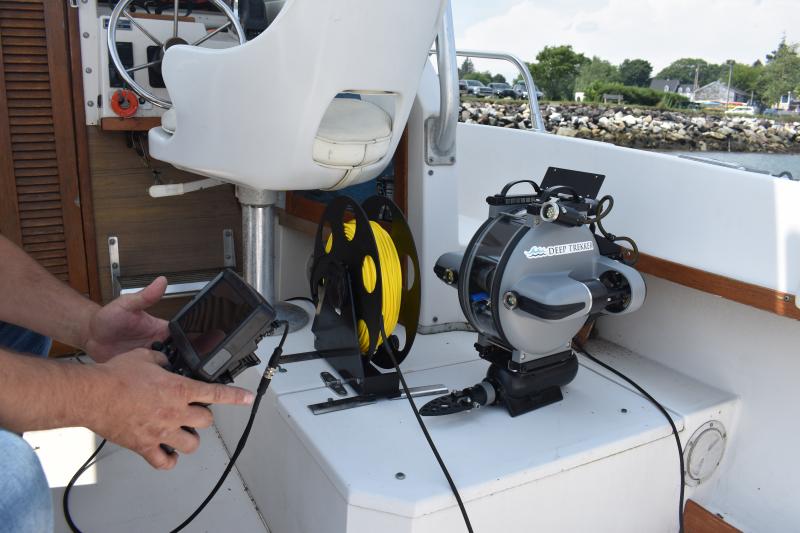 (Photo by Sarah Thompson)
(Photo by Sarah Thompson)
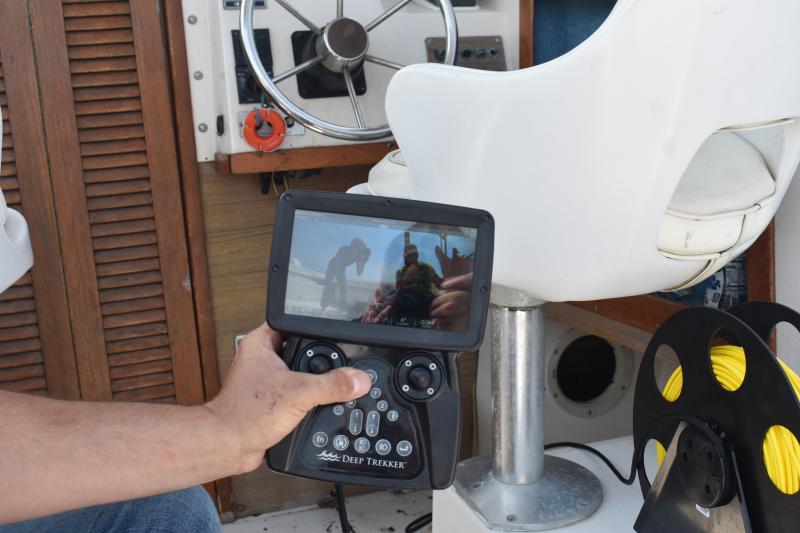 (Photo by Sarah Thompson)
(Photo by Sarah Thompson)
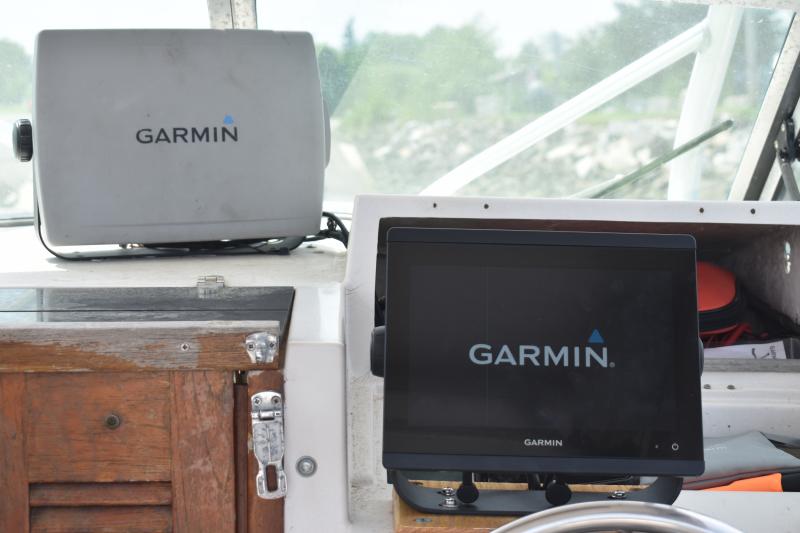 (Photo by Sarah Thompson)
(Photo by Sarah Thompson)
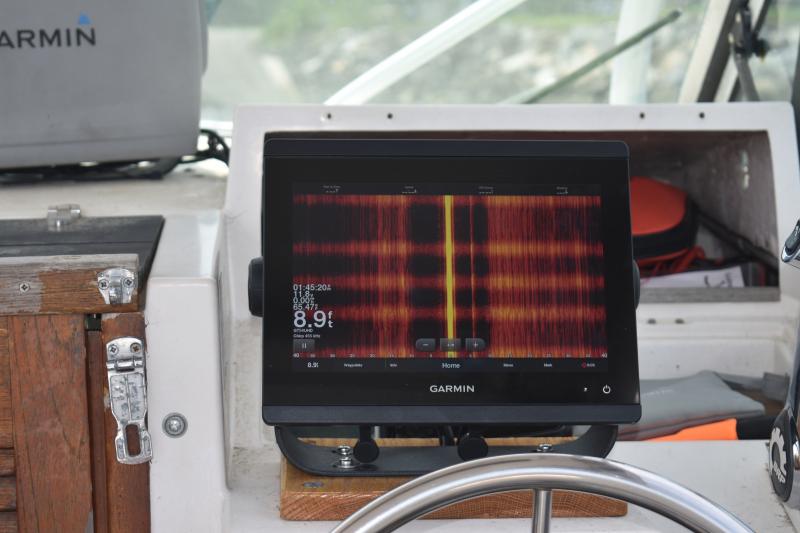 Too close to the muddy bottom to pick up any camera image here. (Photo by Sarah Thompson)
Too close to the muddy bottom to pick up any camera image here. (Photo by Sarah Thompson)
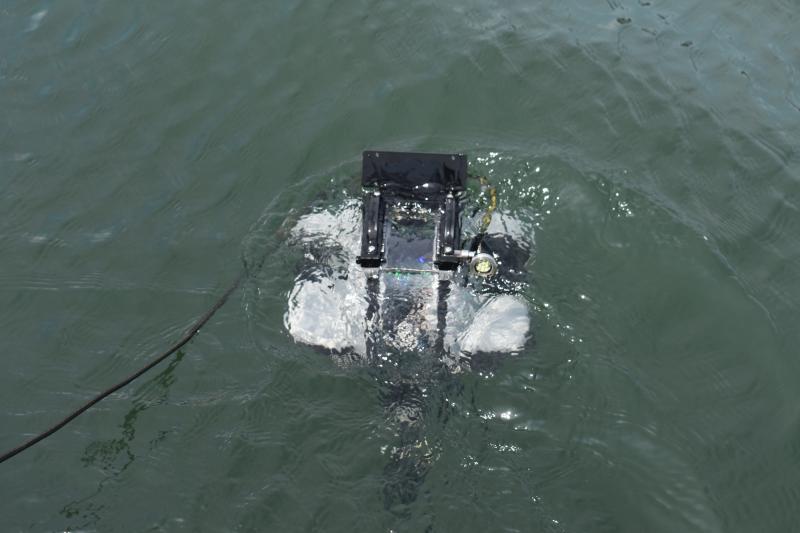 (Photo by Sarah Thompson)
(Photo by Sarah Thompson)
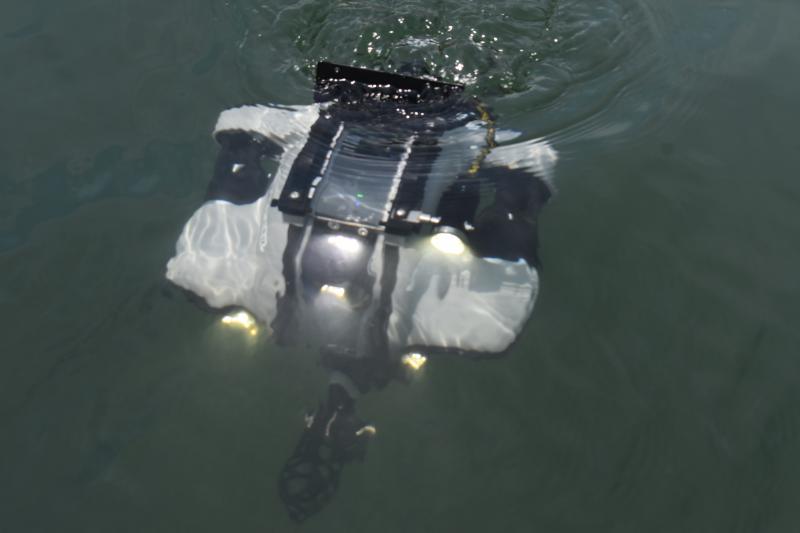 (Photo by Sarah Thompson)
(Photo by Sarah Thompson)
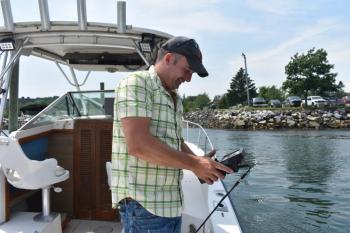 Ian Emmott maneuvers his Deep Trekker recovery machine using a remote control. (Photo by Sarah Thompson)
Ian Emmott maneuvers his Deep Trekker recovery machine using a remote control. (Photo by Sarah Thompson)
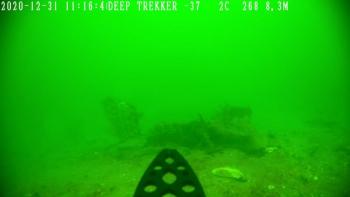 (Photo courtesy Ian Emmott)
(Photo courtesy Ian Emmott)
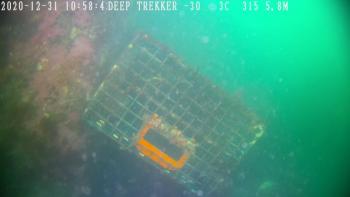 January view of a sunken trap in Rockland Harbor. (Photo courtesy Ian Emmott)
January view of a sunken trap in Rockland Harbor. (Photo courtesy Ian Emmott)
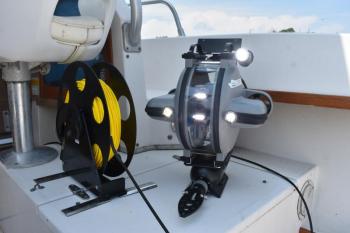 Deep Trekker. (Photo by Sarah Thompson)
Deep Trekker. (Photo by Sarah Thompson)
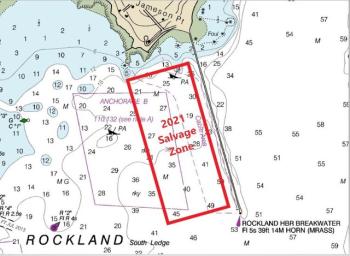 Map of Emmott’s intended recovery zone. (Photo courtesy Ian Emmott)
Map of Emmott’s intended recovery zone. (Photo courtesy Ian Emmott)
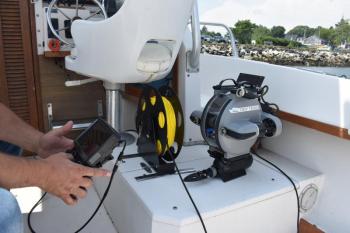 (Photo by Sarah Thompson)
(Photo by Sarah Thompson)
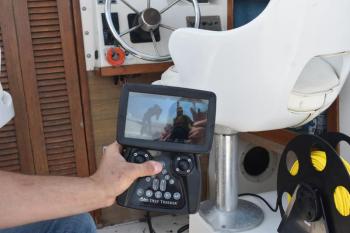 (Photo by Sarah Thompson)
(Photo by Sarah Thompson)
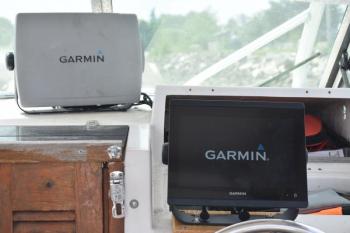 (Photo by Sarah Thompson)
(Photo by Sarah Thompson)
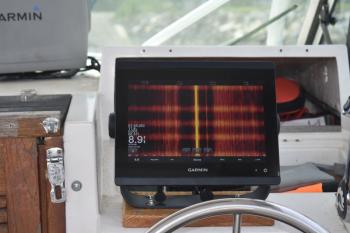 Too close to the muddy bottom to pick up any camera image here. (Photo by Sarah Thompson)
Too close to the muddy bottom to pick up any camera image here. (Photo by Sarah Thompson)
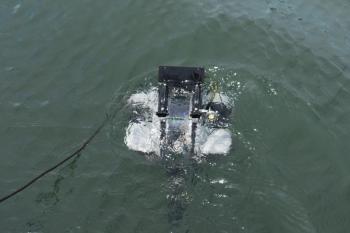 (Photo by Sarah Thompson)
(Photo by Sarah Thompson)
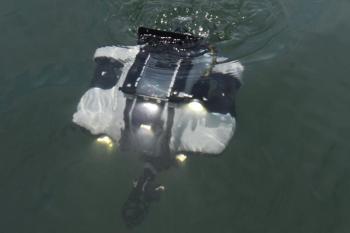 (Photo by Sarah Thompson)
(Photo by Sarah Thompson)
ROCKLAND — Beginning Monday, July 18, Sub Sea Rockland will be retrieving sunken, derelict fishing gear from the depths of Rockland Harbor. The initiative, done completely pro bono, is a major win for Sub Sea’s owner, Ian Emmott, given that Maine salvage laws do not cover third-party recovery.
He had been told that by law, he couldn’t pick any of it up. But, after conversations with Maine Marine Patrol and with the help of a state senator, he was given the green light.
Based on his January sonar GPS mapping, 200 derelict items have been pinpointed along the ocean’s bottom just on the side of the Breakwater where Emmott is currently planning operations.
Closer to the tip of the Breakwater, where the currents are stronger, and Emmott is less comfortable keeping hold of his sensitive equipment, “there’s probably a lot more [derelict gear],” he believes.
“I was in the Coast Guard,” he said. “Every time you run over a line, you lose a trap. Sometimes one line has nine traps on it.”
Emmott has decided that the time has come to clean up the subsurface zone, which, in Rockland Harbor has depths reaching 30-35 feet. Aqua Mesh, a modern type of lobster trap material, is constructed to last 20 years.
In January, he asked the Department of Marine Resources licensing division for permission to clean, citing the items he knows of that have roosted on the ocean floor for 10 years.
Permission was denied; he was absolutely not to touch any traps abandoned underwater. However, since his request was not of the every day type, he was bounced from representative to representative, receiving no clarification on how to undertake a salvage.
The specific laws protecting all traps, active or derelict, are covered under Title 12, §6434: Molesting lobster gear (maine.gov). There is no special clause for abandoned or lost gear that is obviously not attached to any line on the surface to pull it back up.
After months of telephone calls, Emmott reached out to Senator Dave Miramant, D-Camden, who is Chair of Maine Legislature’s Marine Resources Committee.
Miramant provided contact information for Lt. Dan White, of Maine Marine Patrol, and who oversees this type of dispensation. He and Emmott developed a plan ensuring all salvageable gear is returned to the owner, and nonsalvageable gear is recycled.
“The problem I’m facing is that when I’m out there, and I’m moving around, they [fishermen] think that I’m stealing their traps,” said Emmott.
Emmott does marine inspections for a living. When someone wants to purchase a boat, they call him. Because of his career, his own boat is outfitted with sonar imaging technology. Last winter, on a downtime whim, he decided to shift the sonar’s attention away from the hulls of boats, and instead inspect the ocean floor. An idea to assist with cleanup floated to the surface.
By law, all sunken gear must be returned to its owner, and Emmott is happy to oblige.
“I think some of the fishermen around here would appreciate that,” he said. “Getting a call saying the trap you lost a year or two ago....”
Everything that is not salvageable will be recycled through Oceans Wide. Locally, though, Emmott has few alternatives available to him. Rockland’s Public Works is in the process of capping the City’s landfill. Sometimes, other ocean salvage groups up-cycle unclaimed equipment to artists. The rest either finds its way to a crusher, or remains in piles of limbo.
The nonprofit Gulf of Maine Lobster Foundation states that over 100,000 traps are lost in Penobscot Bay every year, according to Emmott.
“I’m only going to be doing about two tons of recovery before November,” he said. “It may sound like a lot, but it’s not.”
It all adds up quickly. Moorings, granite blocks, bricks and line and Aqua Mesh, which requires disassembling before it can be crushed.
“It takes a lot of people to make it work,” he said, noting that traps can weigh up to 50 pounds each.
In looking at the future of local sea cleanup, Emmott advocates for moonlighting options for fishermen. Sometimes marine resource groups will pay fishermen to drag derelict items to the shore.
“That way, some of the lobstermen around here can get their stuff on a regular basis,” he said. “On a slow season, they can get extra money. One person doing it, it’s tough; you can’t do it forever.”
A crusher has not been found for the Sub Sea Rockland volunteer cleanup, though Emmott is hoping that the City will find grant money for its purchase. With a crusher available, teenagers could potentially be paid to do the crushing, which is how other sea salvage groups have divided the work.
“I’m not charging. I’m not asking for money at all,” he said. “I would like to get more awareness to the situation. What’s the end all? Maybe a crusher for the City, and a grant. And to get some of this stuff off of the bottom.”
Reach Sarah Thompson at news@penbaypilot.com
Event Date
Address
United States

